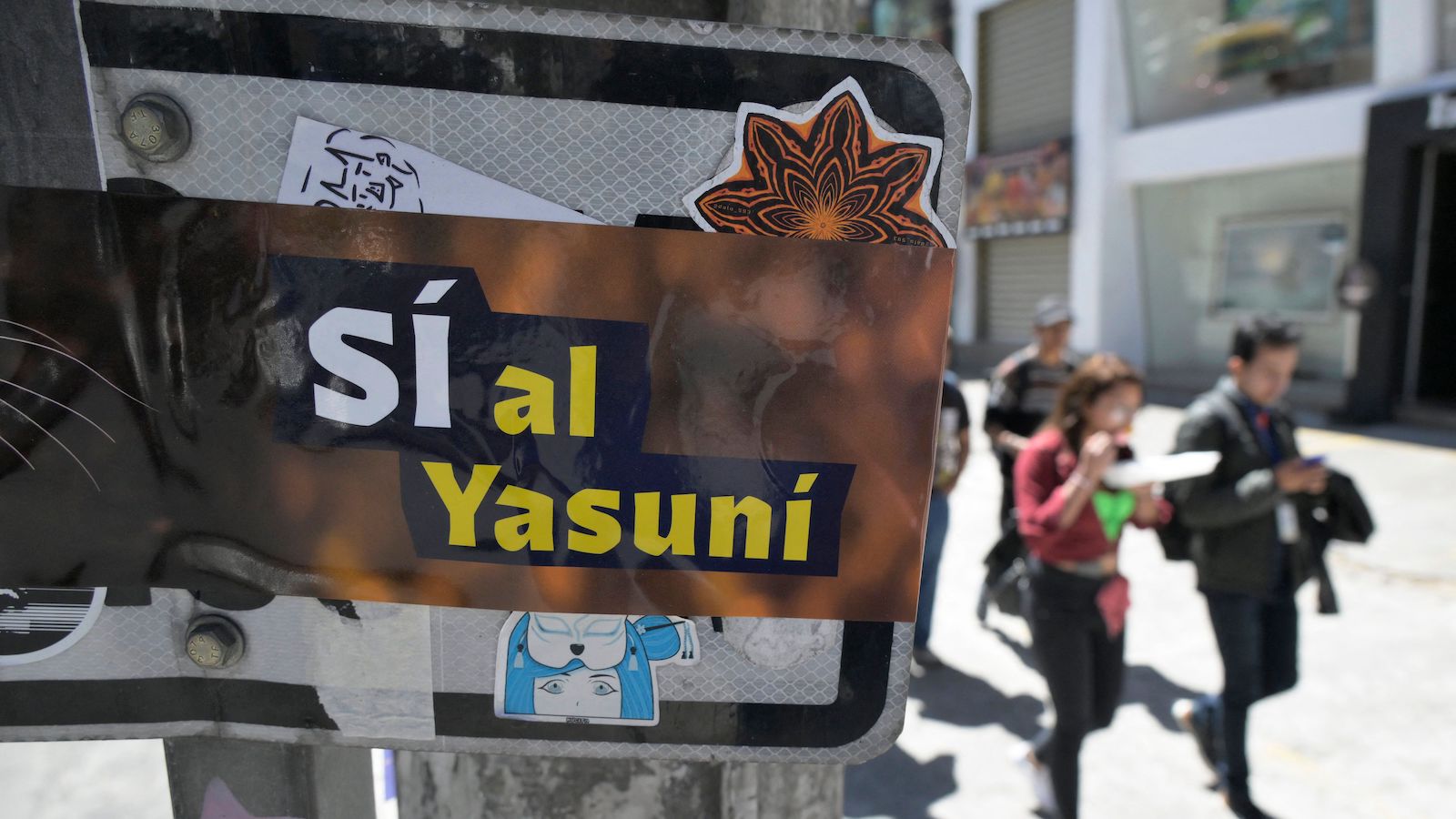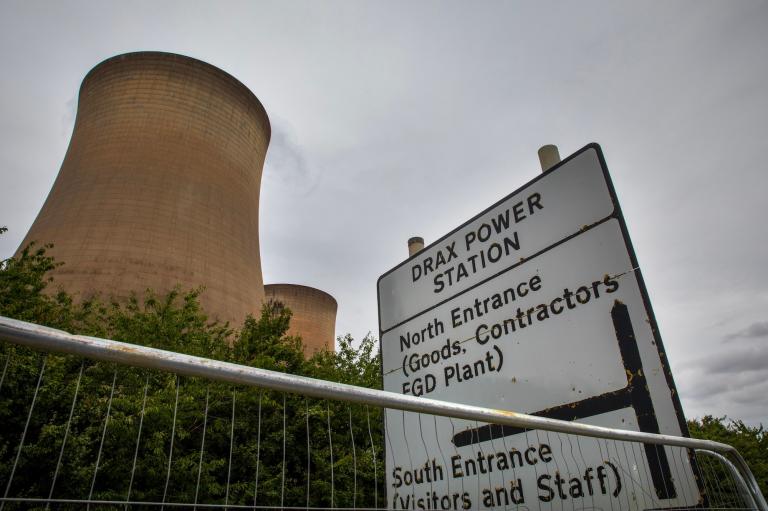In a historic referendum held over the weekend, Ecuadorian voters said no to oil drilling in a swath of Yasuní National Park, a protected part of the Amazon rainforest that’s home to at least two self-isolated Indigenous tribes.
“Yasuní gives life to our world, and Ecuadorian society has finally woken up to this,” Nemonte Nenquimo, an Indigenous Waorani activist and winner of the Goldman Environmental Prize, said in a statement. “People are now realizing the crises we face aren’t going to be solved by exploiting more oil.”
Yasuní National Park is a sprawling, 3,800-square-mile reserve in the Ecuadorian section of the Amazon rainforest, in the northeastern part of the country. It’s home to the Tagaeri and Taromenane, tribes that choose to live without contact with the outside world. Declared a UNESCO biosphere reserve in 1989, the park is also a hotspot for biodiversity, boasting hundreds of distinct bird, reptile, and amphibian species. Scientists say that just one hectare (2.47 acres) of Yasuní land boasts more tree species than there are in all of North America. The park is also home to Ecuador’s largest reserve of crude oil.
This weekend’s referendum follows more than a decade of organizing from green groups and environmental advocates who wanted to keep that oil in the ground — including former President Rafael Correa, who in 2007 asked developed countries for $3.6 billion to keep the Yasuní free from oil exploration. That funding never materialized, however, and Petroecuador, the state-owned oil company, began drilling in the park in 2016. Today, the company produces some 55,000 barrels of oil a day in a relatively small swath of the park called Block 43.
The drilling ban, which drew support from about 60 percent of Ecuadorian voters, will now require Petroecuador to dismantle its operations in Block 43, preventing the extraction of some 726 million barrels of oil worth an estimated $1.2 billion. (The vote does not ban drilling in two other Yasuní blocks, although activists have made inroads against oil extraction in one of them.)
Critics said Ecuador was “shooting itself in the foot” by stopping drilling, because it will lose revenue and have to buy more oil from other countries. Ecuador’s central bank said a ban on drilling in Block 43 would cause a 1.9 percent reduction in economic growth between 2023 and 2026.
Environmental advocates, however, said the move will nudge Ecuador away from resource extraction and toward more sustainable economic activity, like ecotourism. They celebrated the outcome as a victory for democracy; it’s the first time citizens have had a direct say in the future of Amazonian oil exploration.
“The outcome of this referendum is a victory for all Ecuadorians,” Pedro Bermo, a spokesperson for the environmental collective Yasunidos, said in a statement. “It shows us that the greatest national consensus at this time is in the defense of nature, the defense of Indigenous peoples and nationalities, the defense of life.” Voters also approved a separate ban on mining in the Choco Andino forest, in the north of Ecuador.
The referendum marked a bright spot for many in Ecuador, which was rattled earlier this month when a presidential candidate was assassinated while leaving a campaign rally. Voters on Sunday also cast ballots for president in a snap election to decide who will succeed President Guillermo Lasso, an oil-drilling proponent. The race, which has been dominated by concerns over safety and drug-trafficking, will likely be decided in an October 15 runoff between the leftist candidate Luisa González or the right-wing candidate Daniel Noboa.




